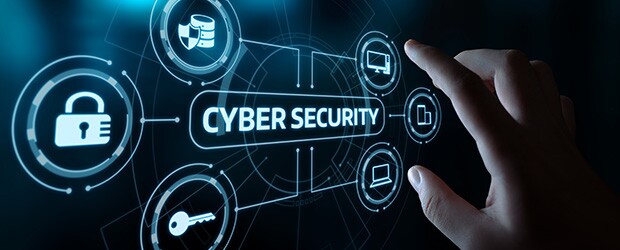Describing importance of cybersecurity?and Keep safe online
The importance of cybersecurity in our digital age cannot be overstated. It is a collective responsibility that extends from individuals.

In today's increasingly interconnected and digital world, the importance of cybersecurity has become a critical concern for individuals, businesses, and governments alike.
The rapid advancement of technology has brought about numerous benefits, but it has also exposed us to a wide range of online threats. From identity theft to data breaches and cyberattacks, the importance of cybersecurity cannot be overstated.
In this blog post, we will explore why cybersecurity is crucial and provide essential tips to help you stay safe online.
Understanding the importance of cybersecurity
Cybersecurity refers to the practice of protecting computer systems, networks, and digital information from theft, damage, or unauthorized access. It encompasses a wide range of measures and technologies designed to safeguard your digital life. While cybersecurity is often associated with high-profile data breaches and attacks on major corporations, it is equally relevant to individuals and small businesses.
The Importance of Cybersecurity
1. Protecting Personal Information
One of the most significant reasons to prioritize cybersecurity is to protect your personal information. In the digital age, we store a vast amount of sensitive data online, including financial information, social security numbers, and personal documents. Without adequate protection, this information can be stolen and used for malicious purposes, such as identity theft or financial fraud.
2. Safeguarding Financial Assets
Cyberattacks can have serious financial consequences. Hackers can gain access to your bank accounts, credit card information, and other financial assets if you are not adequately protected. This can result in significant financial losses and damage to your credit score, which can take years to repair.
3. Preventing Identity Theft
Identity theft occurs when someone steals your personal information and uses it to impersonate you for fraudulent activities. This can have far-reaching consequences, affecting your credit history, employment opportunities, and even your legal record. Cybersecurity measures can help prevent identity theft by securing your personal data.
4. Protecting Privacy
In an era where privacy is increasingly at risk, cybersecurity plays a vital role in safeguarding your personal space. Hackers and malicious actors can invade your privacy by accessing your emails, social media accounts, and personal messages. Strong cybersecurity measures can help you maintain control over your digital life.
5. Securing Businesses and Critical Infrastructure
Businesses and critical infrastructure, such as power grids and healthcare systems, rely heavily on technology. A breach in their cybersecurity can lead to catastrophic consequences, affecting not only the organization but also society as a whole. The importance of cybersecurity in protecting these entities cannot be overstated.
6. Preventing Data Breaches
Data breaches are becoming increasingly common, and they can have severe consequences for organizations and individuals alike. These breaches often result in the exposure of sensitive customer data, which can lead to financial penalties, damage to reputation, and legal consequences. Strong cybersecurity measures are essential to prevent data breaches.
7. Countering Cybercrime
The rise of cybercrime has led to an urgent need for robust cybersecurity measures. Criminals are constantly evolving their tactics, making it crucial for individuals and organizations to stay ahead in the cybersecurity game. By investing in cybersecurity, we can collectively work towards reducing cybercrime rates.
Staying Safe Online: Essential Tips
Now that we understand the importance of cybersecurity let's explore some essential tips to help you stay safe online.
1. Use Strong and Unique Passwords
Passwords are your first line of defense against unauthorized access. Use strong, complex passwords that combine upper and lower-case letters, numbers, and symbols. Avoid using easily guessable information like birthdays or common words. It's also crucial to use unique passwords for each of your online accounts to prevent a single breach from compromising all your accounts.
2. Enable Two-Factor Authentication (2FA)
Two-factor authentication adds an extra layer of security by requiring you to provide a second form of verification, such as a code sent to your mobile device, in addition to your password. Enable 2FA wherever possible to enhance your account security.
3. Keep Software and Operating Systems Updated
Regularly updating your software, including your operating system, web browsers, and applications, is crucial. Updates often contain security patches that fix vulnerabilities that cybercriminals can exploit. Enable automatic updates when available.
4. Be Cautious of Phishing Attempts
Phishing is a common method cybercriminals use to trick individuals into revealing sensitive information. Be cautious of unsolicited emails, messages, or links, especially if they request personal or financial information. Verify the sender's authenticity before responding.
5. Use Antivirus and Anti-Malware Software
Install reputable antivirus and anti-malware software on your devices. These programs can help detect and remove malicious software that could compromise your security.
6. Secure Your Wi-Fi Network
If you have a home Wi-Fi network, make sure it is secured with a strong password. Change the default login credentials for your router to prevent unauthorized access. Regularly update your router's firmware to patch security vulnerabilities.
7. Be Wary of Public Wi-Fi
Public Wi-Fi networks are often less secure than private ones. Avoid conducting sensitive transactions or accessing sensitive information when connected to public Wi-Fi. If you must use public Wi-Fi, consider using a virtual private network (VPN) to encrypt your connection.
8. Regularly Back Up Your Data
Frequently back up your important data to an external device or a secure cloud storage service. In the event of a cyberattack or data loss, having backups can prevent irreparable damage.
9. Educate Yourself
Stay informed about the latest cybersecurity threats and best practices. Education is one of the most effective tools in protecting yourself online. Follow reputable cybersecurity blogs, attend webinars, and participate in online courses to enhance your knowledge.
10. Practice Safe Social Media Habits
Be mindful of the information you share on social media platforms. Cybercriminals often gather personal information from social media profiles to craft convincing phishing attacks. Review your privacy settings and limit the amount of personal information you disclose online.
In an increasingly digital world, the importance of cybersecurity cannot be overstated. It is essential for protecting your personal information, financial assets, and privacy. Additionally, robust cybersecurity measures are crucial for safeguarding businesses, critical infrastructure, and society as a whole from the ever-evolving threats posed by cybercriminals.
By following the essential tips outlined in this blog post and staying vigilant, you can significantly reduce your risk of falling victim to cyberattacks. Remember that cybersecurity is a shared responsibility, and by taking steps to protect yourself online, you contribute to a safer digital environment for everyone. Stay safe, stay secure, and embrace the digital world with confidence.
What's Your Reaction?
















